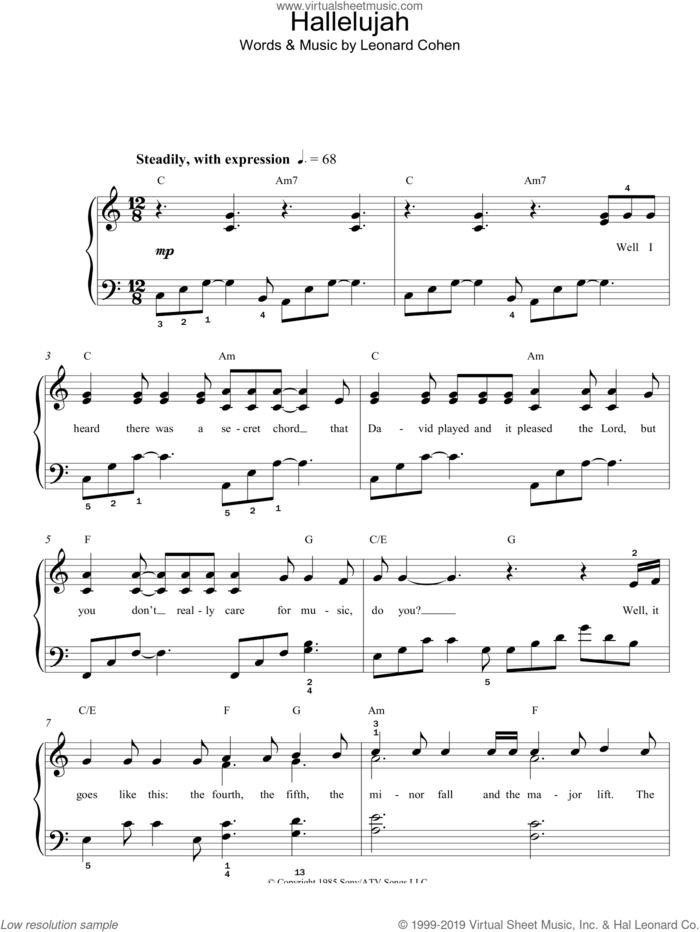

Then again, something might be lost if Mr. Although Cohen sanctioned the writing of this, he did not participate in it - and his voice is notably missing.

Cohen himself commented in any kind of a definitive way: as part of his thesis, Light repeatedly comes back to the idea that Hallelujah has enjoyed the slow build to popularity - It's hard to sustain an entire book based on an analysis of one song, but if there's a song to write a book on (other than perhaps one by Dylan), it'd be Hallelujah. It's hard to sustain an entire book based on an analysis of one song, but if there's a song to write a book on (other than perhaps one by Dylan), it'd be Hallelujah. The Holy or the Broken gives insight into how great songs come to be, how they come to be listened to, and how they can be forever reinterpreted.more Through in-depth interviews with its interpreters and the key figures who were actually there for its original recordings, acclaimed music journalist Alan Light follows the improbable journey of “Hallelujah” straight to the heart of popular culture. After two such commercially disappointing outings, how did one obscure song become an international anthem for human triumph and tragedy, a song each successive generation seems to feel they have discovered and claimed as uniquely their own? Three years after that, Buckley would be dead, his album largely unknown, and “Hallelujah” still unreleased as a single. Ten years later, charismatic newcomer Jeff Buckley reimagined the song for his much-anticipated debut album, Grace. Yet when music legend Leonard Cohen first wrote and recorded “Hallelujah,” it was for an album rejected by his longtime record label. lang, and it is played every year at countless events-both sacred and secular-around the world. It has been covered by hundreds of artists, including Bob Dylan, U2, Justin Timberlake, and k.d. It has become a staple of movies and television shows as diverse as Shrek and The West Wing, of tribute videos and telethons. Pain and pleasure.” Today, “Hallelujah” is one of the most-performed rock songs in history. On a side note the beginning of the song "well it goes like this the fourth, the fifth the minor fall and the major lift" actually refers to the chords the artist is playing through the song.“ A venerated creator. Seems like its more directed toward a failed relationship. But then If I listen to Rufus Wainwrights version it sounds more so filled with sorrow. When I listen to Jeff Buckley's version it sounds very passionate and sexual.

The song refers to many biblical stories such as Samson, Delilah, King David and Bathsheeba. Jeff Buckley described his version as being the "Hallelujah to the orgasm" Alison Crowe took it as a very sexual song of a relationship. Cohen wrote this presenting the idea that there is more then one Hallelujah "Glory to the Lord" he said that all the different types were of the same value. With this song I believe it depends on the version you are listening to.
#LEONARD COHEN JEFF BUCKLEY HALLELUJAH LYRICS HOW TO#
Was how to shoot somebody who outdrew you Well there was a time when you let me know I've seen this room and I've walked this floor She broke your throne and she cut your hairĪnd from your lips she drew the hallelujah Her beauty and the moonlight overthrew you Well your faith was strong but you needed proof Well it goes like this the fourth, the fifth That David played and it pleased the lordīut you don't really care for music, do you


 0 kommentar(er)
0 kommentar(er)
